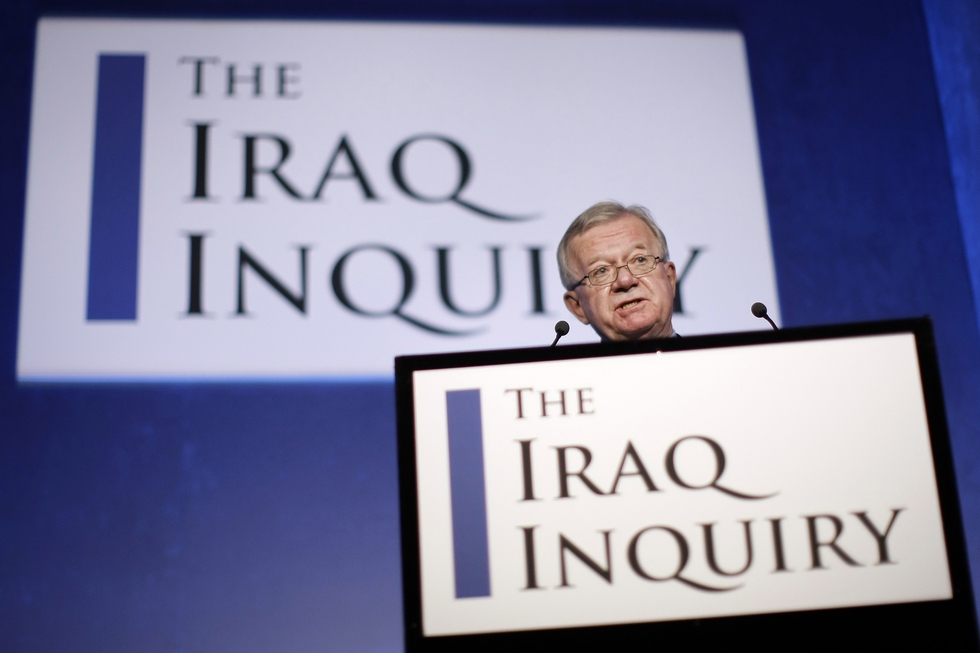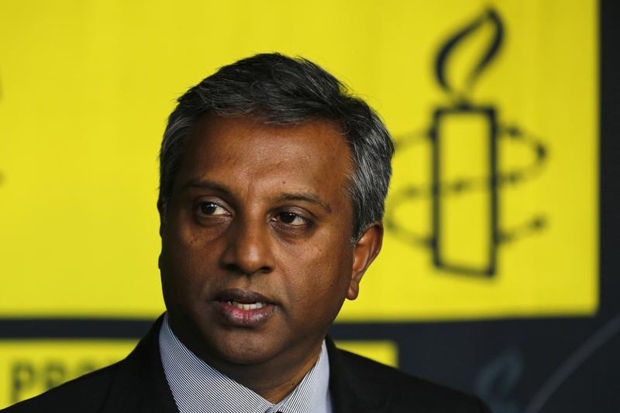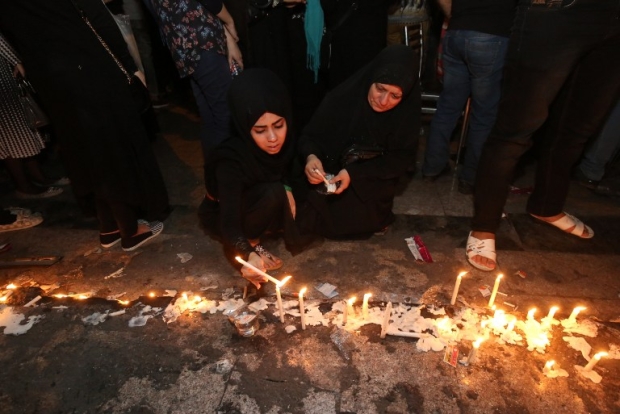LIVE BLOG: Chilcot as it happens

The long-awaited report by Sir John Chilcot, probing why Britain went to war in Iraq and what lessons can be learned, was released on Wednesday.
The report has taken seven years to complete and has cost £10m.
Live Updates
In his first reaction to the Chilcot report, Tony Blair stresses that toppling Saddam continues to have been the right thing to do:
“It’s claimed by some that by removing Saddam we caused the terrorism today in the Middle East. And it would be better to keep him in power. I profoundly disagree. Saddam was himself a wellspring of terror, a threat to peace and his own people. If he had been left in power in 2003, then I believe he would have once again threatened world peace and when the Arab revolutions of 2011 began, he would have [fought off change]…with the same deadly consequences that we see in Syria today.
"Whereas at least in Iraq, with all of its challenges, we have today a government that is elected, recognised as internationally legitimate and is fighting terrorism. The world was, and is in my judgement, a better place without Saddam Hussein."
Key points coming out of Blair's speech (that is still in full flow):
- Britain pushed the US to go back to the Security Council again and "Britain has continually tried not to act without the authority of the UN"
- The US was going to war and to move with us or without us.
- "I took this decision with the heaviest of hearts"
"The report accepts that after 9/11 the calculus of risk changed fundamentally. We believed we had to change policy….to eliminate the possibility of WMD and regimes coming together," Blair said.
"Hussein’s was the only regime to use such weapons and his record of bloodshed suggested he was capable of …. Such actions."
Former Prime Minister Tony Blair is speaking in London about the Chilcot report:
"The decision to go to war in Iraq and remove Saddam from power, in a coalition of over 40 countries, led by the USA, was the hardest, most momentous, most agonising decision I took in my 10 years as Prime Minister. For that decision today, I accept full responsibility – without exception and without excuses.
"I recognise that many in our country are angry over the war and in particular I feel deeply and sincerely, in a way that no words can properly convey, the grief and suffering of those who lost the ones they loved in Iraq – whether the members of our armed forces, the armed forces of other nations, or Iraqis.
"The negligence assessments made at the time of going to war turned out to be wrong. The aftermath turned out to be more hostile, detracted and bloody than ever we imagined. The collation had set out with facts… and encounter another and the nation whose people we wanted to set free from the evil of Saddam, became instead victim to sectarian terrorism."
MEE columnist and author of Not the Chilcot Report tells MEE that the Iraq Inquiry leaves the former PM Tony Blair without a 'leg to stand on' and proves that this was a 'war of aggression'. Read more here.
Salil Shetty, Secretary General of Amnesty International responding to the Chilcot Inquiry's findings:
“One way of showing that the UK government has tried to learn some of the lessons of Iraq would be for it to ensure that current investigations into allegations of unlawful killing and torture and other ill-treatment at the hands of the UK armed forces in Iraq are truly effective and robust. This must include a proper assessment as to the degree to which human rights violations were systemic and apportion responsibility at all levels, something that has been sorely absent to date.
“Wherever there is sufficient admissible evidence, those suspected of criminal responsibility – no matter their rank or position – must be prosecuted in fair trials, while victims and their families must receive full reparation. The UK must also fully cooperate with the International Criminal Court’s preliminary examination into alleged crimes by UK nationals in Iraq from 2003 to 2008, including murder, torture and other ill-treatment.”
Excerpts from the Chilcot Inquiry on the intelligence failings that lead up to the Iraq War:
“The statements prepared for, and used by, the UK government in public from late 2001 onwards conveyed more certainty that the JIC Assessments about Iraq’s proscribed activities and the potential threat they posed”.
Chilcot found that the JIC did not make clear to Blair that intelligence had not proved “beyond reasonable doubt” that Saddam Hussein had continued to produce chemical or biological weapons or that efforts to develop nuclear weapons continued.
He concluded: “At no stage was the hypothesis that Iraq might no longer have chemical, biological or nuclear weapons or programs identified and examined by either the JIC or the policy community”
Speaking to the Guardian's Damian Gayle, Lindsey German said this was "not the end but the beginning of the matter because Chilcot was so damning of Blair and the people around him that there has to be a process" for bringing charges against him, possibly impeachment. "In my view the government should find a way of prosecuting him..."
The Stop the War Coalition in a Press Statement to MEE said:
"The Chilcot report is a damning indictment of Tony Blair and those around him in taking us to war in Iraq. It is clear that he used lies and deception to get his way, that the war was unnecessary and illegal and that everything was done to ensure it went ahead.
The victims are the Iraqis, those soldiers who died and were injured, but also the whole political system traduced by this process.
The anti-war movement and the millions who marched were vindicated by this report and we now demand justice."
Jeremy Corbyn, commenting on the publication of the report in parliament, said he had only had been given access to the document at 8am this morning.
He described the Iraq war as an “act of military aggression” that had long been regarded as illegal by international legal opinion, and had “divided this house and set the government of the day against the majority of British people and the weight of global opinion.
“By any measure the invasion and occupation of Iraq has been a catastrophe,” he said. “None of us who opposed the war should take any satisfaction [from the report]. We have to be saddened by what has been revealed and we must reflect on that.”
Blair wrote to President Bush to assure him that he would be with him "whatever" - but said that if the US wanted a coalition for military action, changes would be needed in three key areas. Those were:
- Progress on the Middle East Process
- UN authority
- A shift in public opinion in the UK, Europe and Arab World
Here’s an excerpt from our article on how Iraqi media are reporting the day’s news:
“While British media reflects on the Iraq war with the publication of the long-awaited Chilcot report, Iraqi media is busy concentrating on the daily chaos the war has left behind.
"Iraqi media was dominated this morning by the ever increasing death toll of the Karrada bombing, popular anger at the government, and of course Eid-ul-Fitr celebrations across the Arab and Islamic world.
"Only BBC Arabic, for obvious reasons, is following the story with any sense of urgency, or even interest.
"If the aim of the Chilcot inquiry was to achieve a sense of closure, its effects, like its reporting, will be limited to the West. In Iraq, it’s a day like any other.”
Read the full article here as well as our latest update on the Karrada bombing here.
Clive Baldwin, senior legal advisor at Human Rights Watch, said in a press statement:
“The publication of the Chilcot report should be a reminder that investigations into the hundreds of allegations of war crimes by UK nationals in Iraq are still far from being completed," he said.
"These need to be finished quickly, fairly, and independently, so the innocent can be cleared and anyone responsible for war crimes be held criminally accountable, up to the highest level," Clive said.
"If the UK authorities prove unwilling to even investigate senior military and political figures for potential responsibility for war crimes in Iraq, the International Criminal Court should factor this into their own inquiry.”
Cameron agrees with Corbyn on there being a litany of failures leading up to the Iraq war and plans of reconstruction but disagrees that intervention in Iraq led to the growth of Al-Qaeda and sectarian forces in Iraq.



